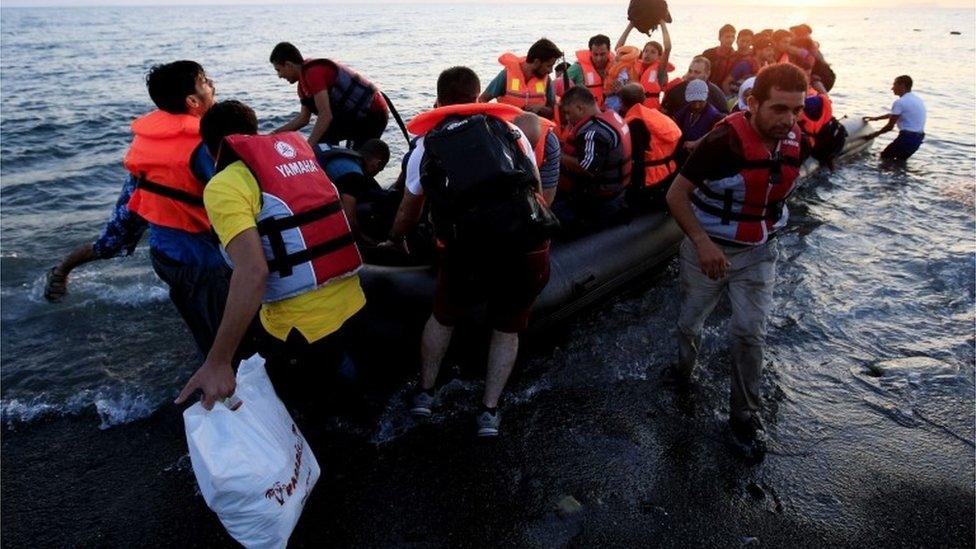UK aid in Libya could be harmful - watchdog
- Published

An independent watchdog has warned that the UK's aid programme in Libya could be harming vulnerable migrants.
About £9m is spent providing water and sanitation for refugees in detention centres, training Libya's coastguard, and helping migrants return home.
But the says that support could be leading to more migrants being detained and denied a right to asylum.
The government said any such risks around aid had been considered.
It added that it protected migrants' human rights and improved their conditions.
'Unintended harm'
Libya is the main departure point for migrants attempting the sea crossing to Europe and is home to up to one million migrants and refugees, according to ICAI.
All those detained by the Libyan government, including those rescued at sea, are held in often overcrowded detention centres where they risk being abused.
The report by the ICAI, which monitors UK aid spending, said there were concerns about the risk that British aid was contributing to a system that prevents refugees from reaching a place of safe asylum.
It also warned that the risk that UK aid could cause "unintended harm" to vulnerable migrants or prevent them from reaching a place of safety had not been adequately assessed.
A government spokesman said: "Cross-government efforts are tackling the root causes of migration by building opportunity and stability for people in their home regions so they don't need to make the perilous journey across the Mediterranean.
"We're also getting help to vulnerable migrants who have already started their treacherous journey."
He added that UK vessels had saved more than 13,000 lives in the Mediterranean Sea since May 2015.
- Published7 February 2017
- Published12 January 2017
- Published21 November 2016
- Published24 October 2016